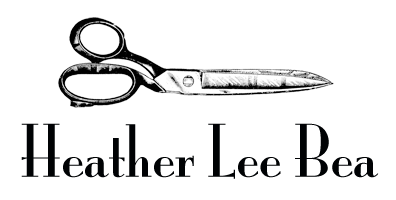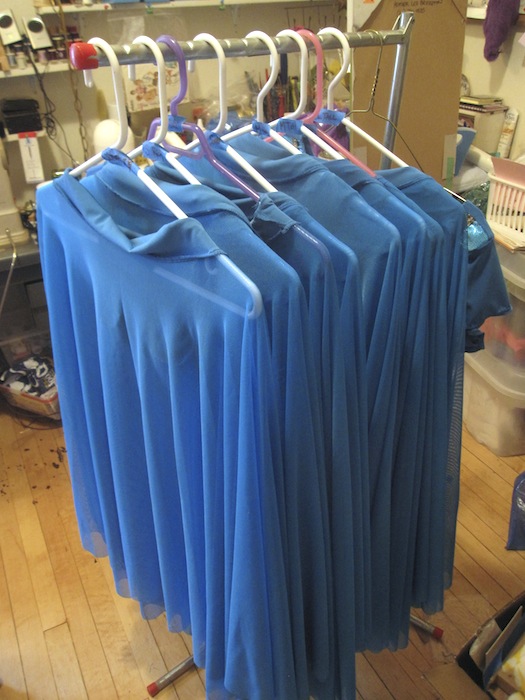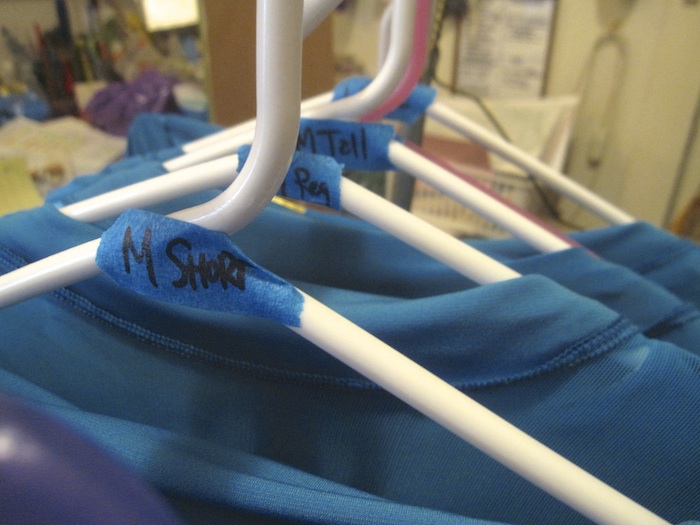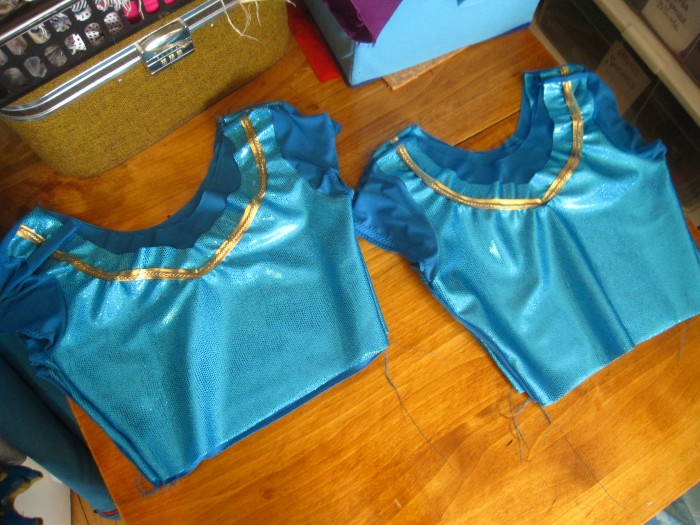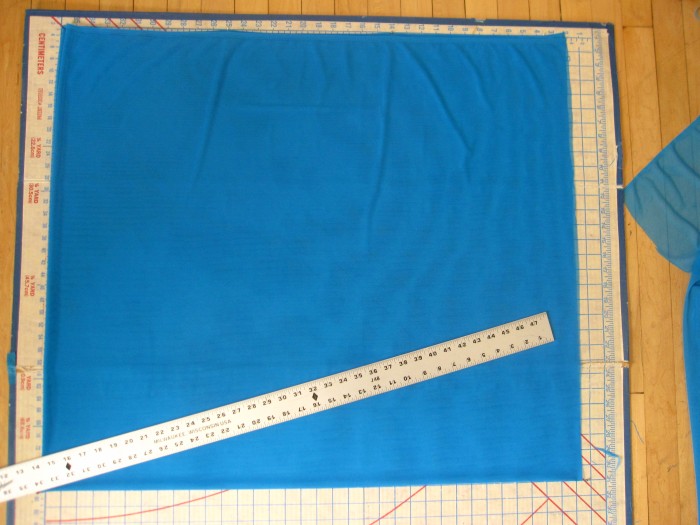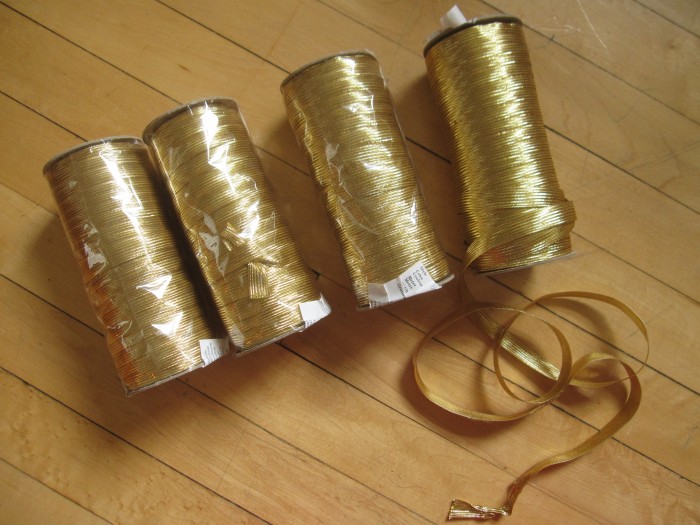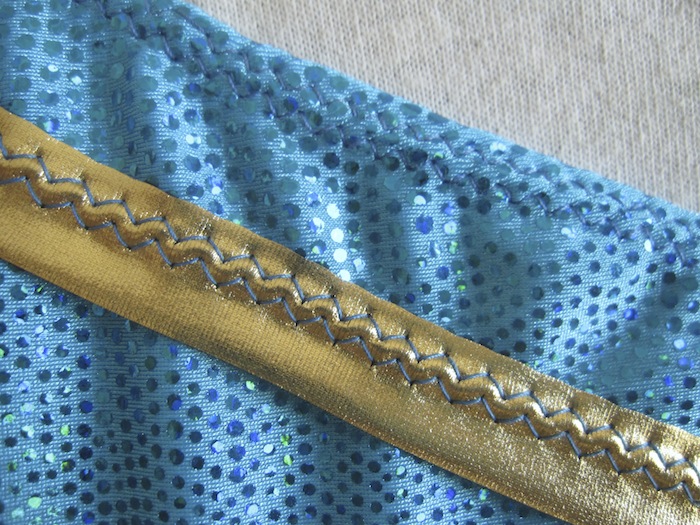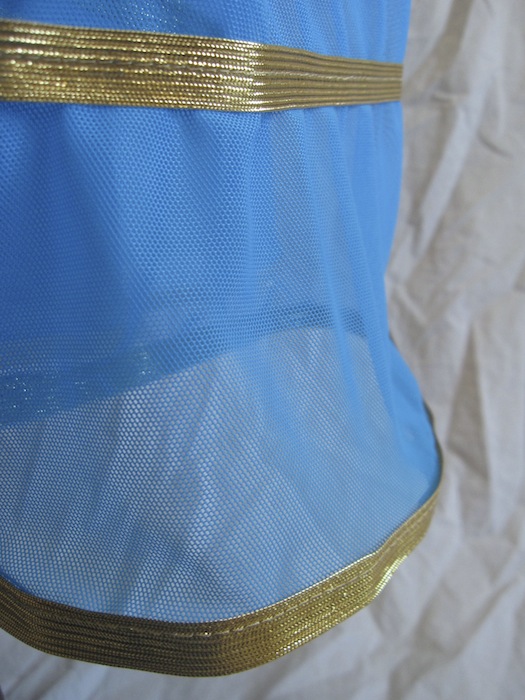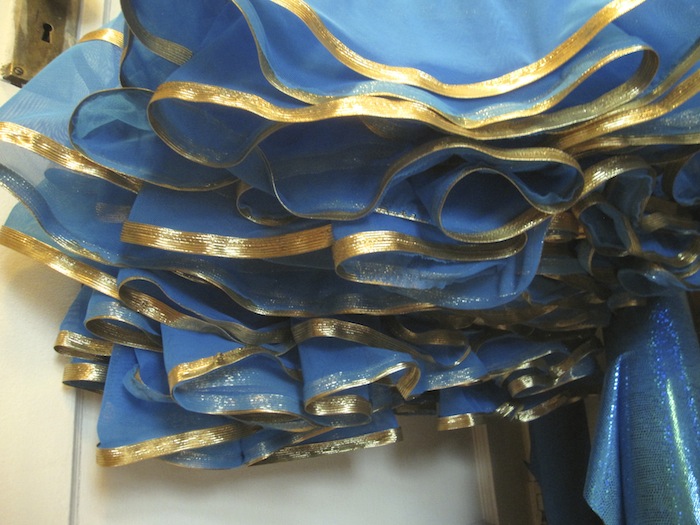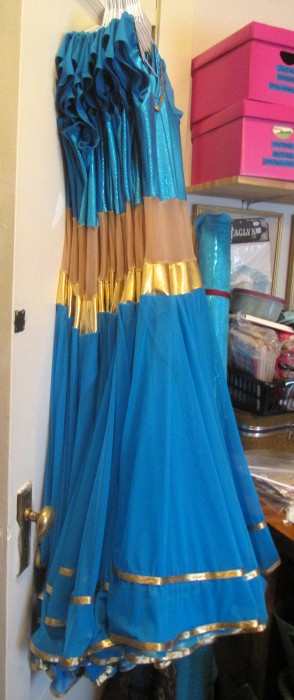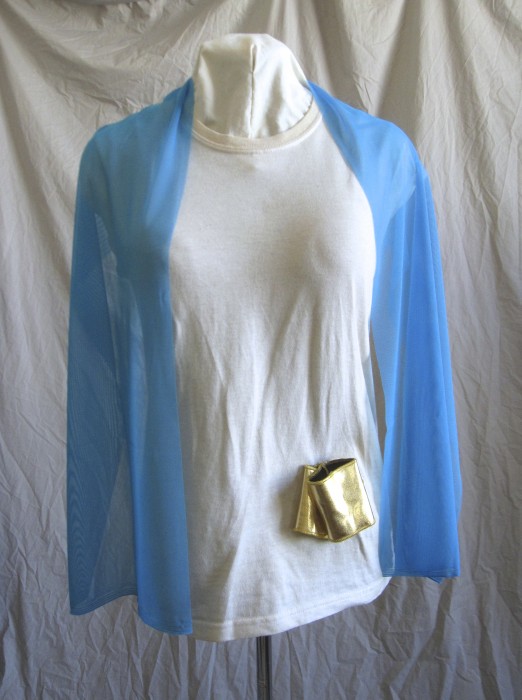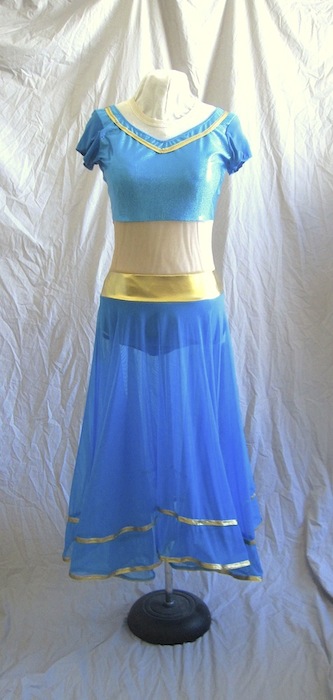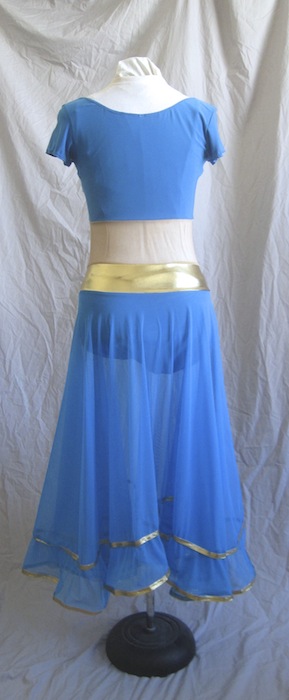In case you were wondering, I’ve been a little busy with this project. After waiting longer than anticipated for both the fabric and trim, it’s been a race to the finish.
Here are some hopefully enlightening thoughts.
1. It’s been awhile.
As previously mentioned, I haven’t done mass production in this manner for some time, and this project involved many pieces to each ensemble. In different sizes. The most important bit in this kind of gig is keeping track of things in various states of completion. In many cases I simply used the ziplock bags clearly labeled with sizes. The skirts were very slinky but hung nicely on hangers once attached to the leotard bottoms.
My vintage sewing table saw some action as a staging area for laying out/stacking the components by size to keep everything straight. Then I made sure to work in batches for the most part. Assembling all of one size before switching over helps when you are working on tired brain.
2. Circle skirts x25.
Again, various sizes. This part of the process was time consuming because of the nature of the stretch mesh. It’s slippery and springy which makes it look great onstage, but as with other drapey fabrics like chiffon, has to be cut one at a time. My method of choice is to pin down a folded length of the material, then carefully quarter it and use a large ruler (this one is 48 inches long) pivoted at the centre corner and freehand snipping the curve. This was fairly efficient and allowed for subtle changes in length. Since the fabric was only 60″ wide, the longer skirts were cut gradually longer on one axis and then sewed with the long edges on the hip – resulting in a fairly even hem when worn. since the trim would hide the bottom edge, I wasn’t too worried about making a perfect line.
3. Get some new music.
By the time I had worked through all the cutting and assembling I can tell you that I really need to update my music collection. It’s been a long time since I spent full time days working on something where I could listen to music and podcasts, so I suppose it’s not been a priority. Especially when working alone, having something on in the background (during serging pauses…) is important for one’s sanity.
4. Remember to document your work.
It can be hard to remember to stop and make notes, and take photos of the both the process and the completed work. For my purposes, the blog helped to keep this in mind. Even if you aren’t putting things up for public consumption though, it’s a good idea to record your method for future reference. Well lit shots with a clean backdrop of the completed item provide an archive and portfolio of your work.
5. Clean up the sewing room.
Another thing I’m trying to be better at. Returning the space to it’s tidy state after a big job so you can start on the next one and possibly it’ll be something for you!
Love Heather
